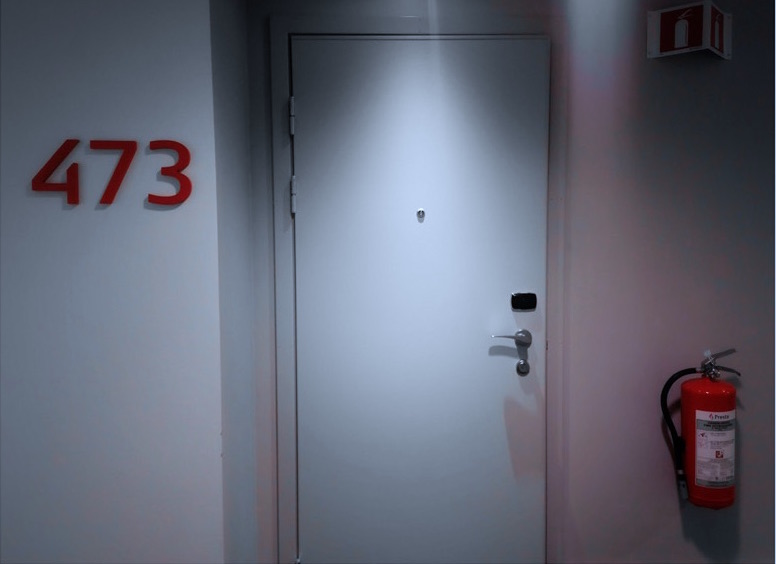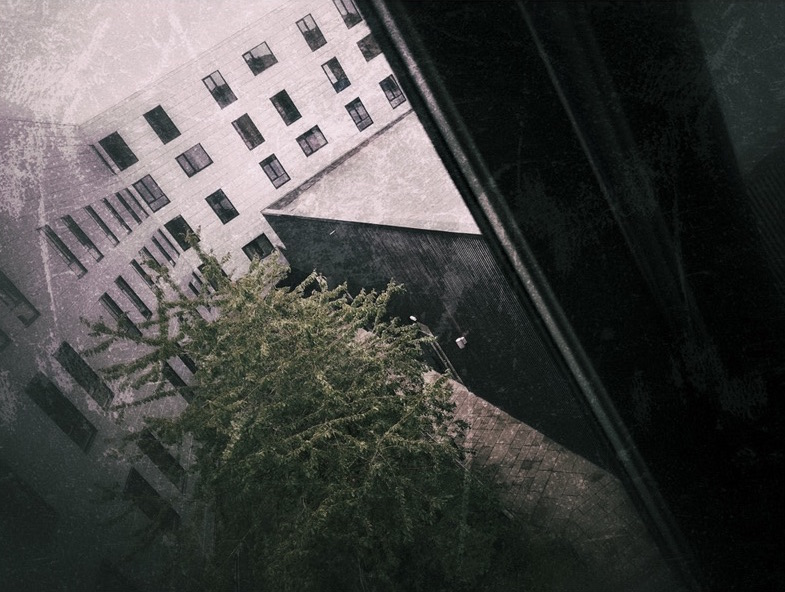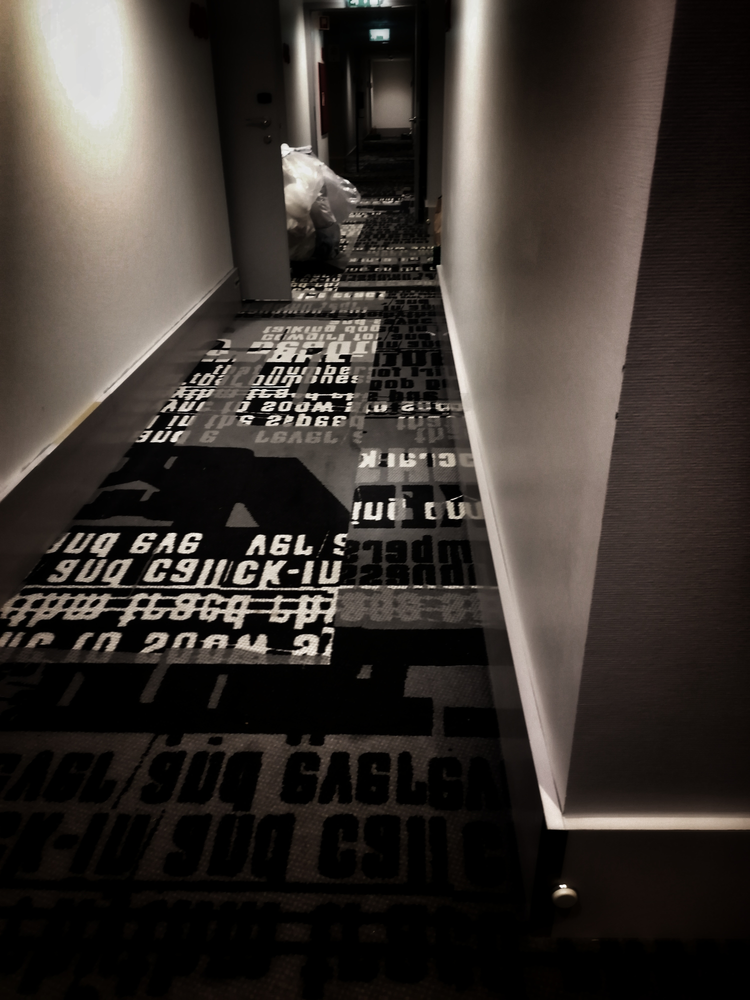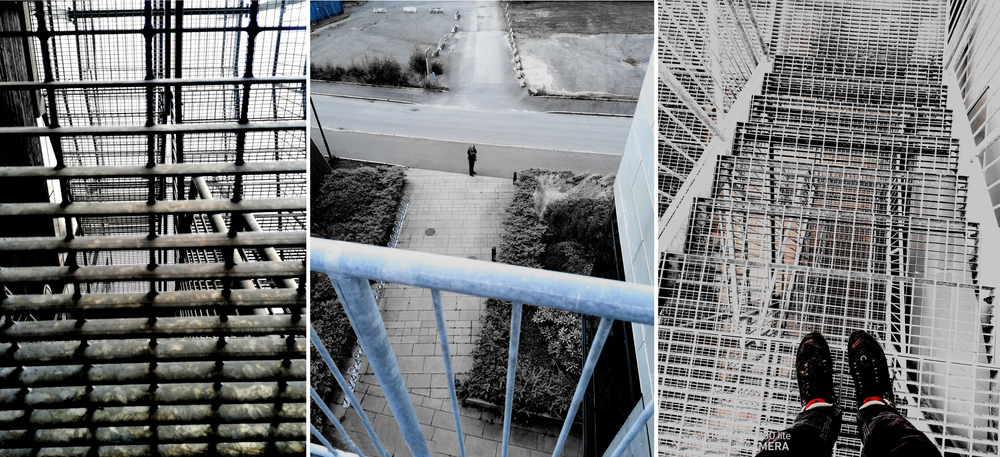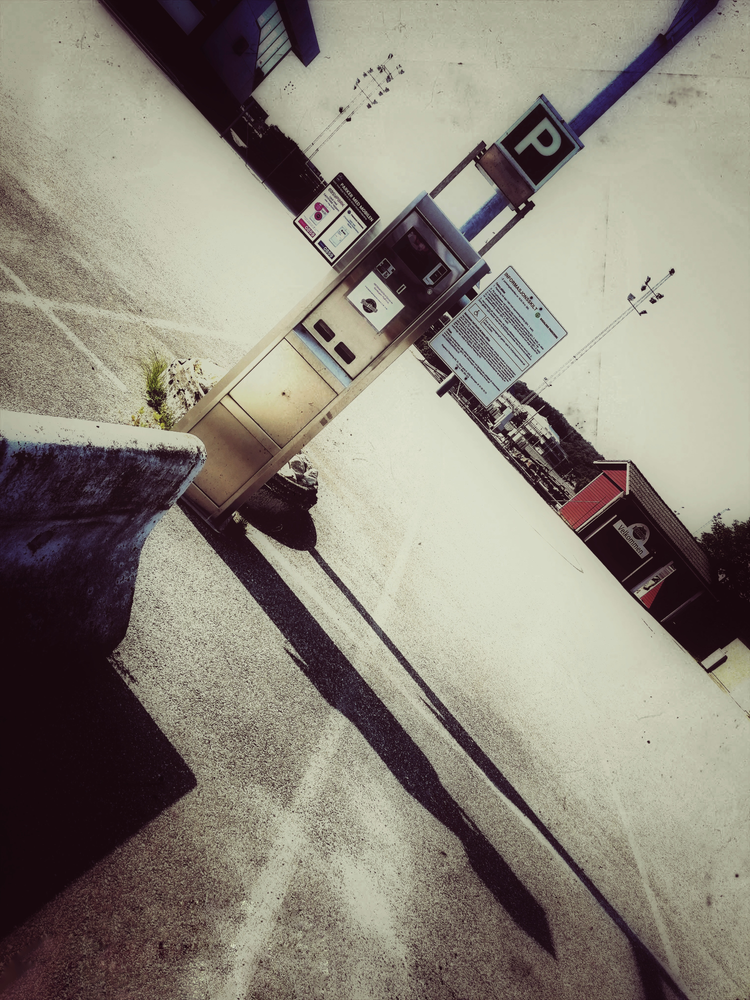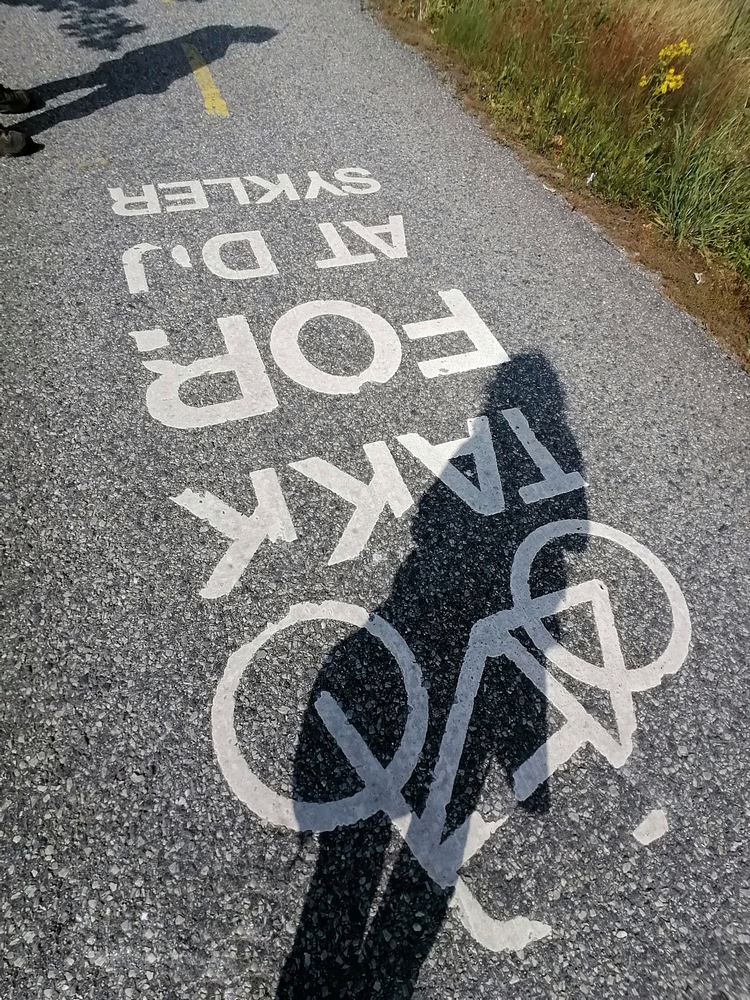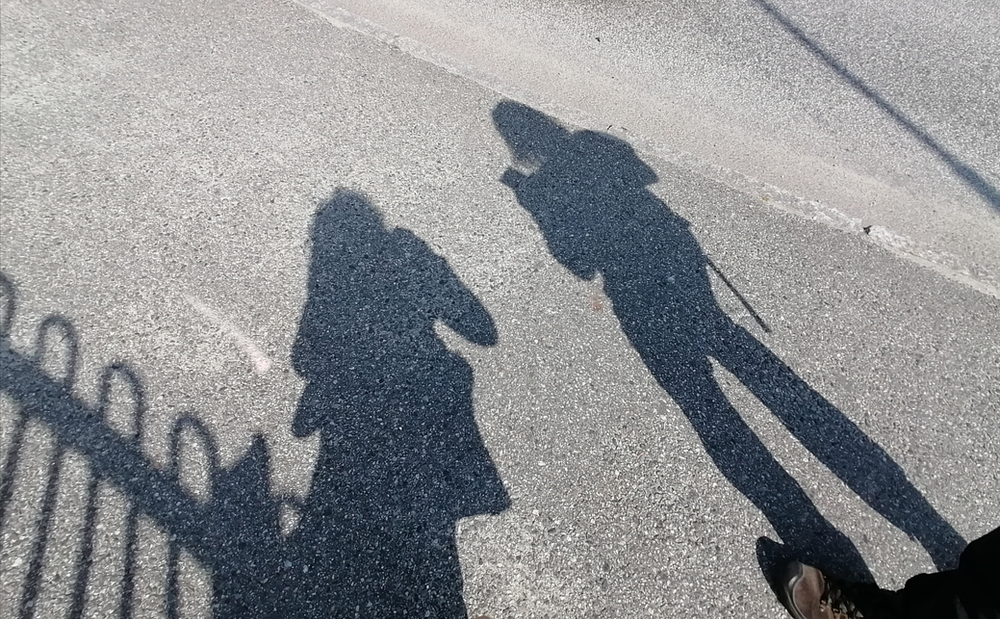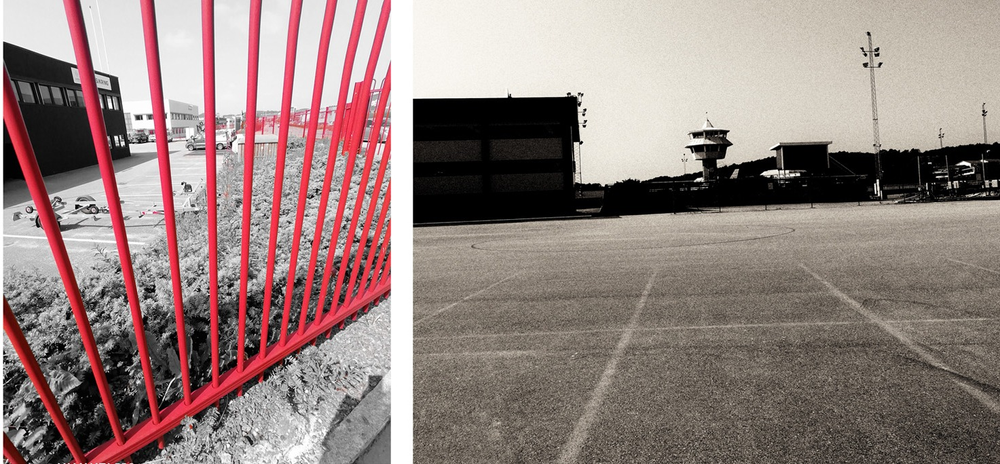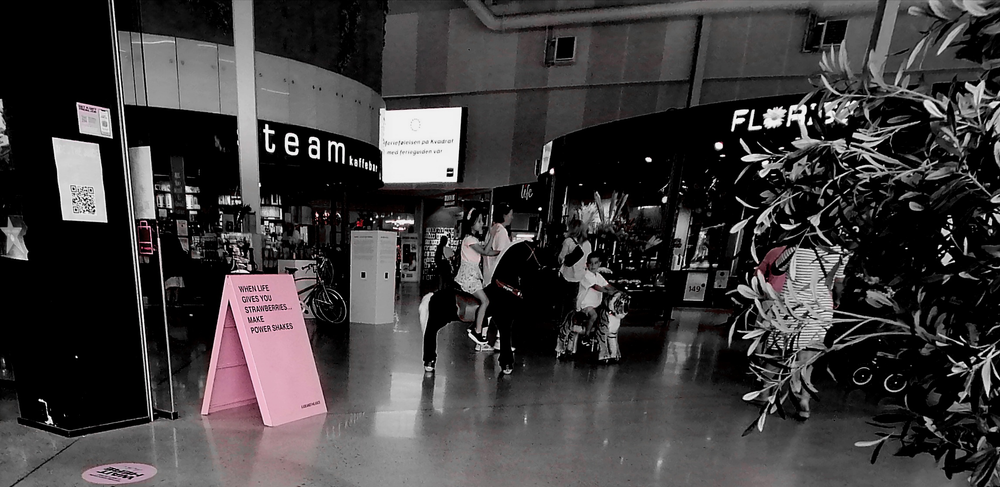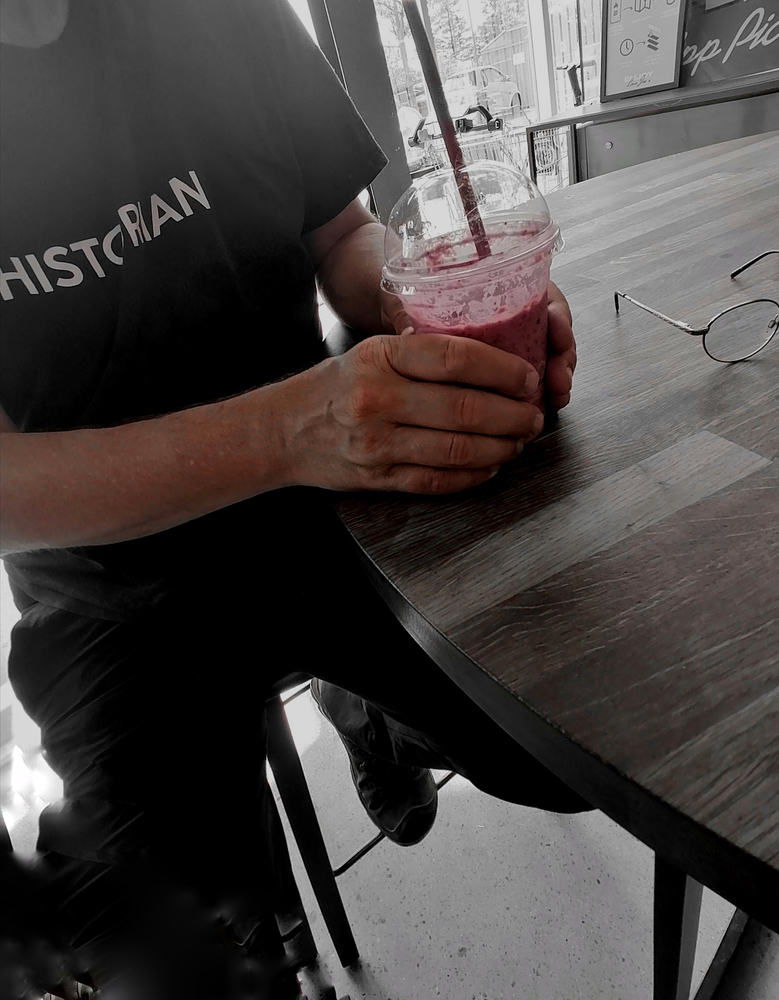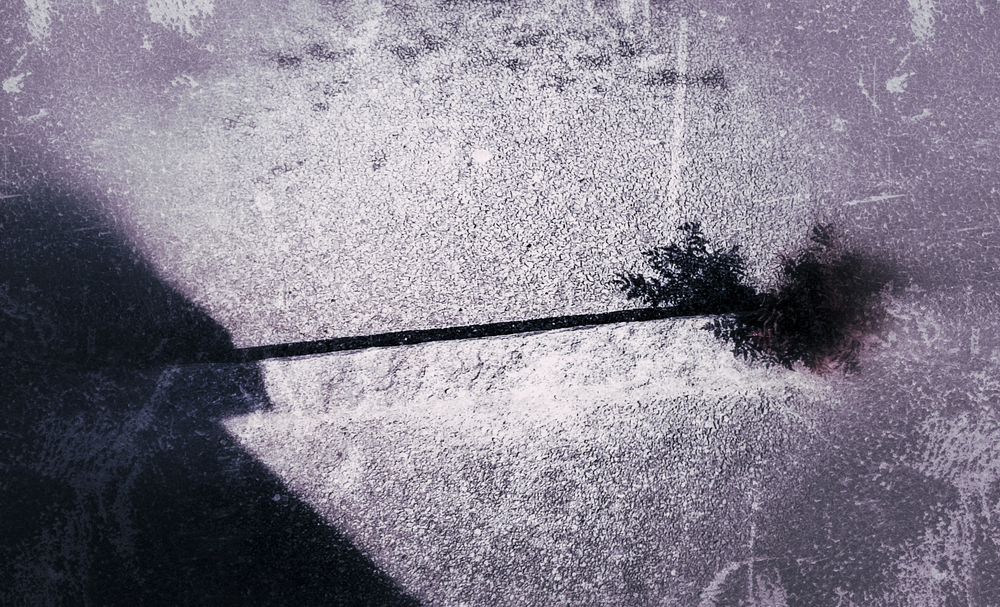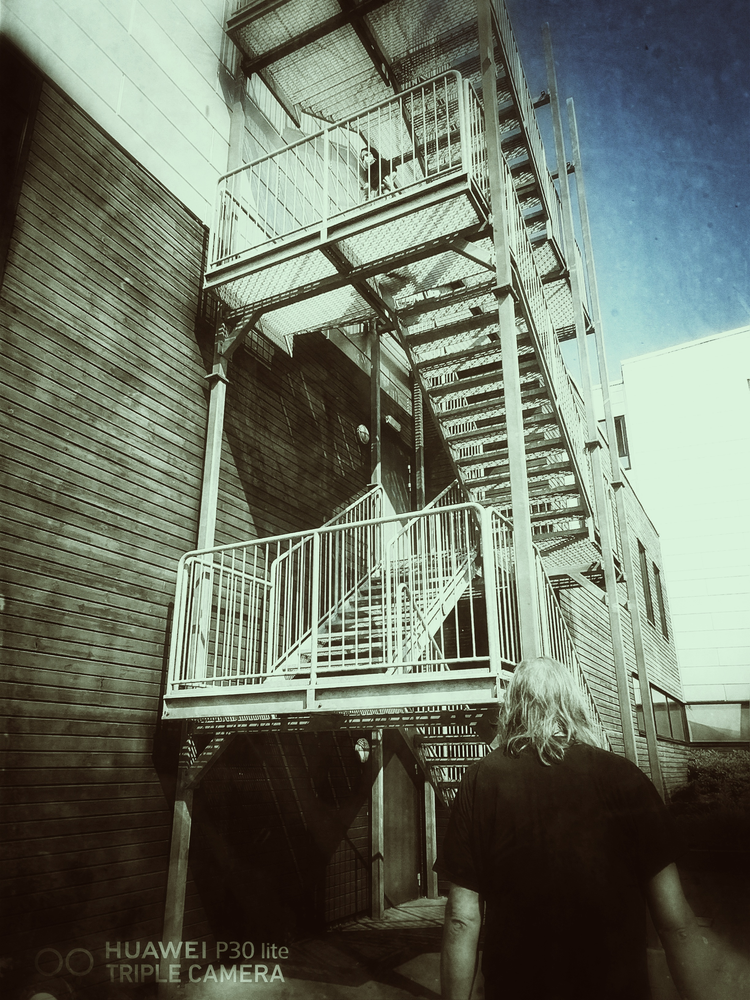Waiting
We are at the Scandic Hotel, Forus, where we have found ourselves incarcerated for the next 3 days while the authorities make sure that we are not about to spread covid-19 to the natives (despite us having had two vaccinations and two negative tests). We are pawns in the politics of the moment
On the fourth floor, our window looks down onto a pale grey metal roof, a narrow path running between, bordered by a few shrubs and an unkempt tree. Opposite is a uniform face of white concrete walls with dark windows. The only way we know other people are behind them is that those occupied have the only slightly-opening window pulled open.
In past two evenings we’re been here sounds of voices from a family with children wandering about in the passage below float up to us. We assume that they too are imprisoned while they wait out the statuary isolation period.
I pace out the room; 18 x13 steps including the bathroom area. Already it’s starting to smell. The corridor smells of food. Food is left here for us to collect... or not.
We sit on the fire escape reading, trying to catch a faint breeze; a few people descend/ascend and mumble a passing greeting. It’s hot and there is no air conditioning in our room. We need wine. We need beer. We need to get out. According to google maps there is a ‘vinmonopoly’ in the not too far away locality.
We walk out of room 473. We clatter down the fire escape as instructed so we don’t encounter and contaminate hotel staff.
We walk across the gas station forecourt. A couple are sitting in deck chairs reading beside the road. We glance and smile, and wonder why they have chosen this place to stop. We are surrounded by concrete and heat.
Our route takes us down a long, seemingly never-ending, highway, with cars and buses and lorries shooting passed – noise and dust and more heat. This is not the sort of place I choose to walk under normal circumstances, but these are not normal times.
I feel I’ve stumbled into one of those edgelands defined by Robert Macfarlane as comprising of ‘jittery, jumbled, broken ground: brownfield sites and utilities infrastructure, crackling substations and pallet depots, transit hubs and sewage farms, scrub forests and sluggish canals, allotments and retail parks, slackened regulatory frameworks and guerilla ecologies’. Some of this description definitely fits the bill. A transitional, liminal space – a kind of a boundary made up of elements of country and town.
According to wixpedia limilaity is the quality of ambiguity or disorientation that occurs in the middle stage of a rite of passage. During a rite's liminal stage, participants "stand at the threshold" between their previous way of structuring their identity, time, or community, and a new way, which completing the rite establishes.
We wander across areas of broken tarmac, empty car parks, deserted buildings, some in a state of decay, others presumably abandoned due to covid, eye slightly space-aged looking building wondering what goes on in there.
We feel in limbo; time has paused, waiting for release from being considered a possible threat of spreading disease, yet aware of being caught up in the politics of the moment. Knowing that our rite of passage will be complete in two days time when we successfully achieved yet another negative rapid antigen test, and are allowed to re-enter our lives. We are all living in a new way now.
Despite the industrial surroundings, nature is managing to maintain a presence. We try to walk on the grass verges, spotting wild flowers and grasses growing beside the roads, in cracks in the tarmac. We find signs of a stream that has been forced underground falling from a concrete pipe disappearing into a gully of fern and swaying grasses and wild flora. A solitary bee hovers, thrusts its small body into blue petalled flowers, and moves on. A small dark butterfly passes.
Wide open areas with heaps of sand and concrete await action. Signs of visitations at earlier times lie everywhere; traces left on walls and ground.
We reach a vast anonymous drab grey structure; in the midst of this non-place, inside here is a shopping mall. We enter and feel bewildered by the normality of life, the lack of masked figures, families sitting in cafes, friends wandering from shop to shop, car parks full of cars, the signs of happy consumption. Where have they all come from? We scuttle into the brightly lit vinmonopoly and buy our alcohol.
We have achieved our task, and then dare to pause and enjoy a smoothie before retreating back through asphalt and industrial wasteland and heat.
Back to wait
